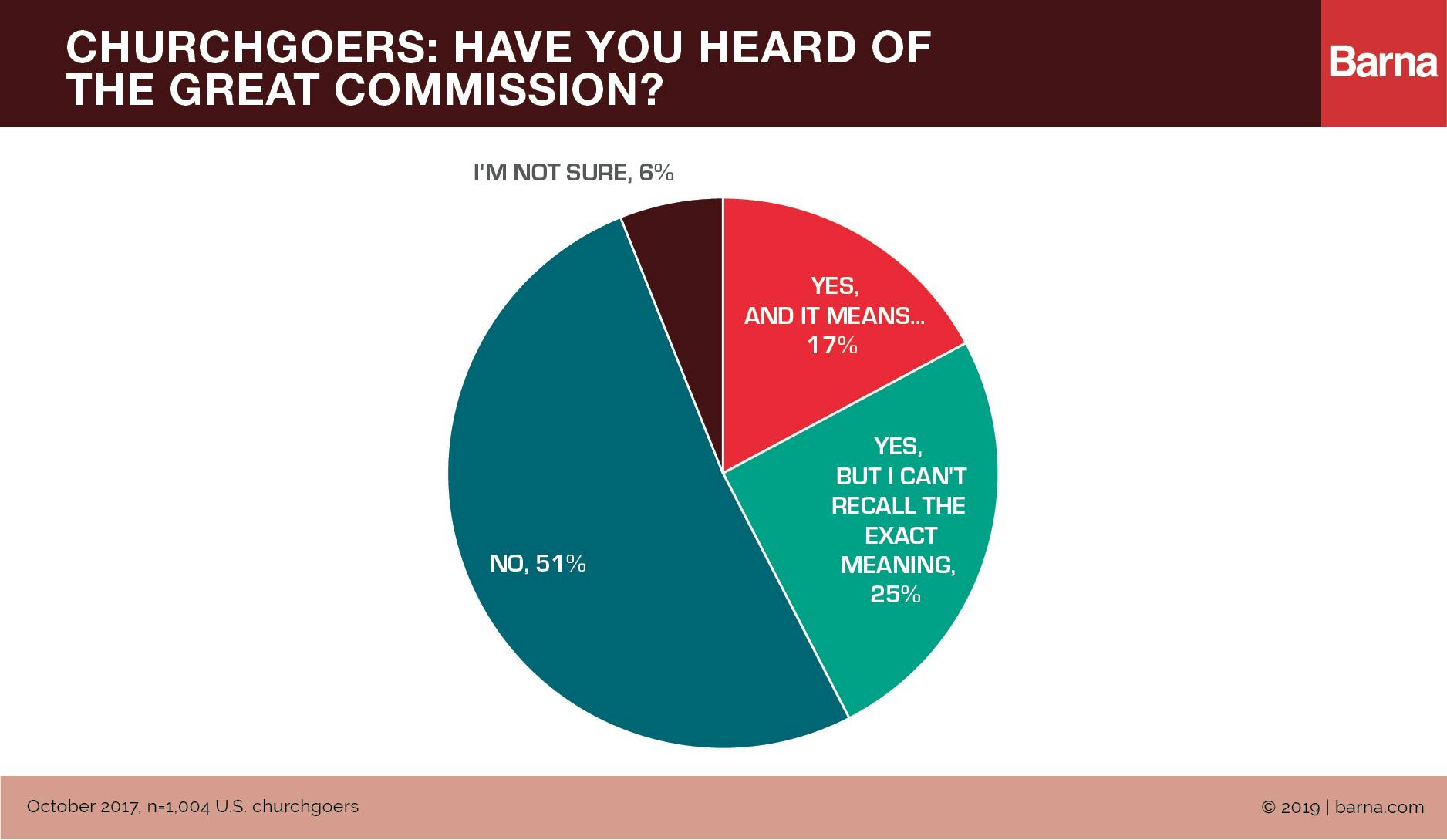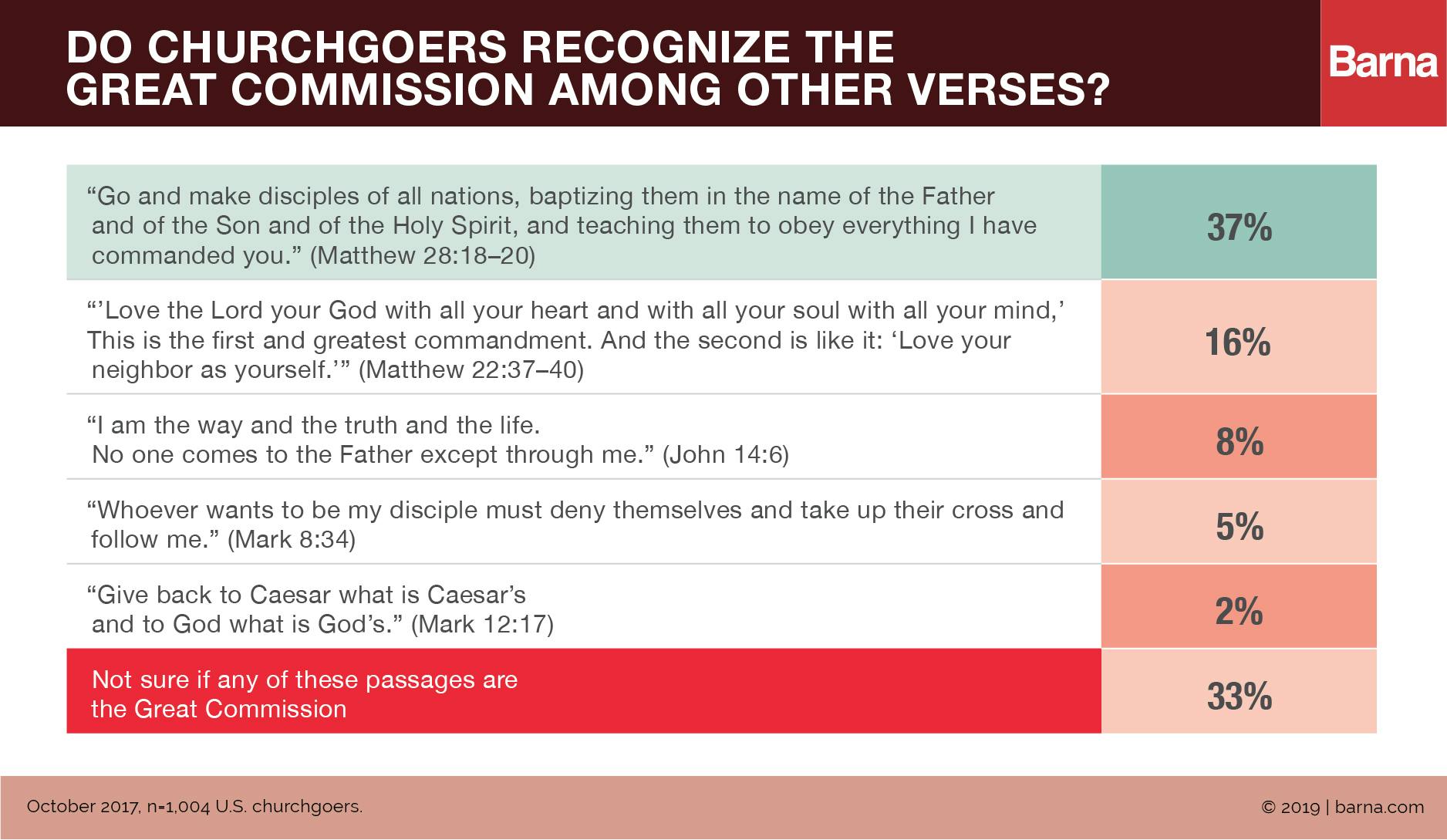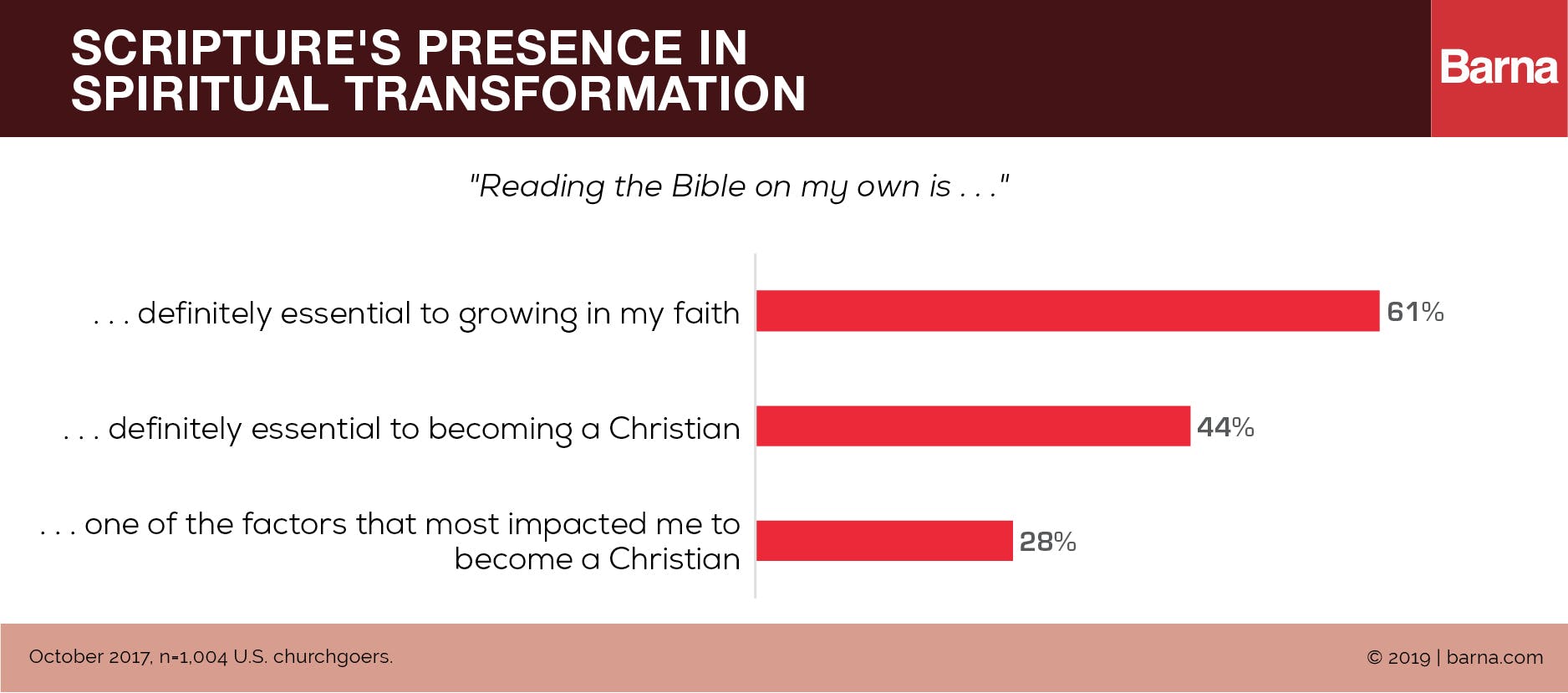
A major finding from our Translating the Great Commission report, produced in partnership with Seed Company, is that more than half of U.S. churchgoers have not heard of the Great Commission. Additionally, even when presented with a list of passages, 37 percent don’t recognize which well-known passage typically goes by this name.
Since releasing this data, Barna has heard from members and leaders of the Church who were surprised or even concerned by this statistic, wondering what it might also reveal about the nature of sermon teaching, biblical literacy and engagement or Christian missions today. Below, experts and practitioners weigh in on how the dynamics of spreading the gospel and making disciples are playing out in their respective contexts.
Translating the Great Commission
What Spreading the Gospel Means to U.S. Christians in the 21st Century
“Ignorance of this term can be attributed to churches not teaching this concept enough anymore.”
Allen Yeh is associate professor of intercultural studies and missiology at Biola University and the author of Polycentric Missiology.

Barna: A key (and some would say surprising) finding in our report is that half of U.S. churchgoers have not heard of “the Great Commission.” Why do you think this is?
Yeh: I myself am very surprised by this finding! However, the phrase “Great Commission” is not found in the Bible whereas the phrase “Great Commandment” is (see Matthew 22:35–40), so that may be part of the problem. Also, there are actually five Great Commissions, not just Matthew 28, which may explain part of the confusion. A “Great Commission” is the last words of Jesus to his disciples, and he gives different words in Mark, Luke, John and Acts. I think all five are worth examining.
In addition, the Great Commission is a much younger concept, historically: William Carey, the “father of modern missions,” brought the Great Commission to light in 1792 through his writing of An Enquiry Into the Obligations of Christians to Use Means for the Conversion of the Heathens. Despite its relative “newness,” I think Carey was right that the Great Commission is not a command only for the original 11 disciples (as everyone believed before 1792) but for all Christians. His rationale was that the main verb in Matthew 28 was to “make disciples.” But if the original 11 made more disciples, and the Great Commission is a command to all disciples, then it must be a command for all Christians! This launched the era known as the “Great Century of Missions” (the 19th century, so dubbed by Yale historian Kenneth Scott Latourette).
I think some of the ignorance of this term can be attributed to churches not teaching this concept enough any more. I certainly heard it a lot growing up, but perhaps it has been lost on this current generation of believers. Maybe we need a new “William Carey” to revitalize interest and educate people again on it!
“The Great Commission and the glory of God it declares must be more than a verse.”
David Daniels is lead pastor of Pantego Bible Church in Fort Worth, Texas and the author of Next Step Discipleship and Next Step Church

Barna: What do you feel pastors’ approach should be in communicating about the Great Commission (as a verse, concept and mission)?
Daniels: Some churches view mission and evangelism as “one item on a spiritual buffet.” That is, the Great Commission is one of many options for churchgoers who feel personally inclined. Other churches view mission and evangelism as “one item on a spiritual plate”—like beets, the Great Commission doesn’t appeal to most people, but everyone has to eat their vegetables, so to speak. Both of these distorted views fail to put gospel proclamation as the centerpiece of the Church’s existence. David Bosch rightly states in his book Transforming Mission, “There is a church because there is a mission, not vice-versa.” When pastors think exclusively about the gospel as God’s means for serving people instead of the Church’s motivation to serve the world, the Great Commission gets lost in the flurry of church-centric activities. The Great Commission and the glory of God it declares must be more than a verse; it must be the driving force of a disciple-making church.
“Scripture unlocks one’s understanding of the person of Jesus Christ.”
Joyce Williams is Chairwoman of the Board for Seed Company.

Barna: What do you see as the function or role of scripture in missions work? Is the presence of the Bible (particularly in a heart language) essential, and if so, what changes might it prompt?
Williams: I am convinced that scripture in one’s heart language is the key that unlocks one’s understanding of the person of Jesus Christ. Scripture is both simple and complex. It teaches in parables and stories and is therefore best understood in the language that one knows best, their heart language. Translating the Bible into the heart languages also allows the less educated to have access to the scriptures because they may not understand their own national language. Once the scripture is translated, Truth enters into a community. It breaks the bonds of sin and corruption and teaches us to love and forgive one another. Its message is powerful.
Barna Access Plus
Strengthen your message, train your team and grow your church with cultural insights and practical resources, all in one place.
About the Research
This study involved qualitative and quantitative research with pastors, churchgoers and U.S. adults. In initial research, an open-ended online survey was conducted in July 2017 to explore perceptions of missions and Bible translation. The 84 participants included 25 pastors, 31 practicing Christians (of any age) and 28 churchgoing Millennials. Subsequently, Barna surveyed the same types of respondents in a comprehensive online survey made up of primarily closed-end quantitative questions. These interviews were conducted in October 2017 with a nationally representative sample of 1,010 U.S. adults, as well as 619 U.S. Protestant senior pastors (senior, lead or executive roles) and 1,004 U.S. adult churchgoers (who have attended a regular church service within the past six months). An oversample of young adults contributed to a total of 692 Millennial churchgoing respondents.
Photo by Slava Bowman on Unsplash
© Barna Group, 2019
About Barna
Since 1984, Barna Group has conducted more than two million interviews over the course of thousands of studies and has become a go-to source for insights about faith, culture, leadership, vocation and generations. Barna is a private, non-partisan, for-profit organization.
Related Posts
Lead with Insight
Strengthen your message, train your team and grow your church with cultural insights and practical resources, all in one place.
Get Barna in your inbox
Subscribe to Barna’s free newsletters for the latest data and insights to navigate today’s most complex issues.








